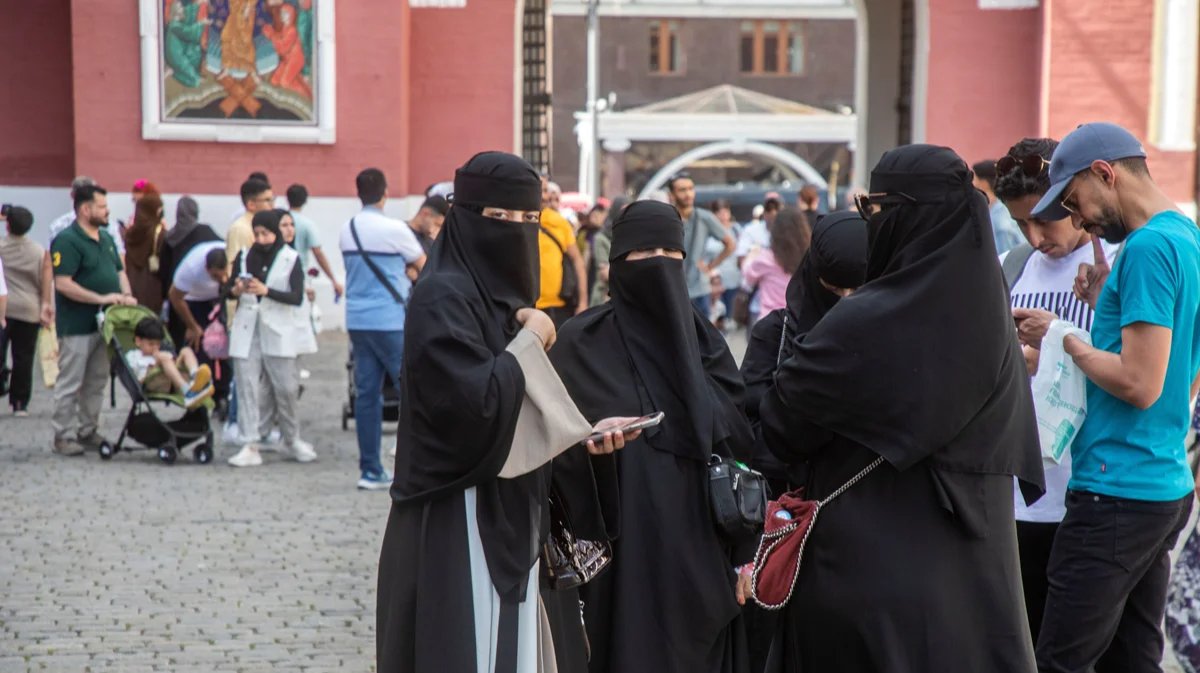
Women wearing the niqab on Red Square, Moscow, 29 June 2024. Photo: Nikolay Vinokurov / Alamy / Vida Press
The Education Ministry in the central Russian Vladimir region issued a decree on Friday banning school children and students wearing religious garments, such as hijabs and niqabs, in its educational institutions.
“It is forbidden for students to wear clothes and symbols … that demonstrate their religious affiliation (including hijabs, niqabs, etc.),” the decree read. The order also said that the requirements around student’s clothes and appearance were there to “ensure the secular nature of educational institutions and to maintain religious neutrality”.
The ministry’s press service noted on Saturday that Russia was a secular state, with “separation of church and state, including within secular education”.
The ministry stressed that banning hijabs, niqabs and other religious garments complied with federal laws on freedom of conscience and religious association as well as with the law on education.
Calls to regulate the wearing of religious garments in Russia began to be made after the March attack on Moscow's Crocus City Hall, and redoubled following the June terror attacks in Dagestan, when the head of Russia’s Investigative Committee Alexander Bastrykin called for a blanket ban on the wearing of the niqab in the country.
Vladislav Davankov, the deputy speaker of the State Duma, Russia’s lower house of parliament, introduced a bill in May that would have allowed educational establishments to ban the wearing of religious symbols.
The bill, which did not ultimately become law, came in for widespread criticism, including from the head of Chechnya, Ramzan Kadyrov, who said in July that he would “kill on the spot” anyone who told his daughter to remove her hijab. “I’ll shoot whoever it is, they’ll be an enemy, my personal enemy, an enemy of Islam,” Kadyrov said.
